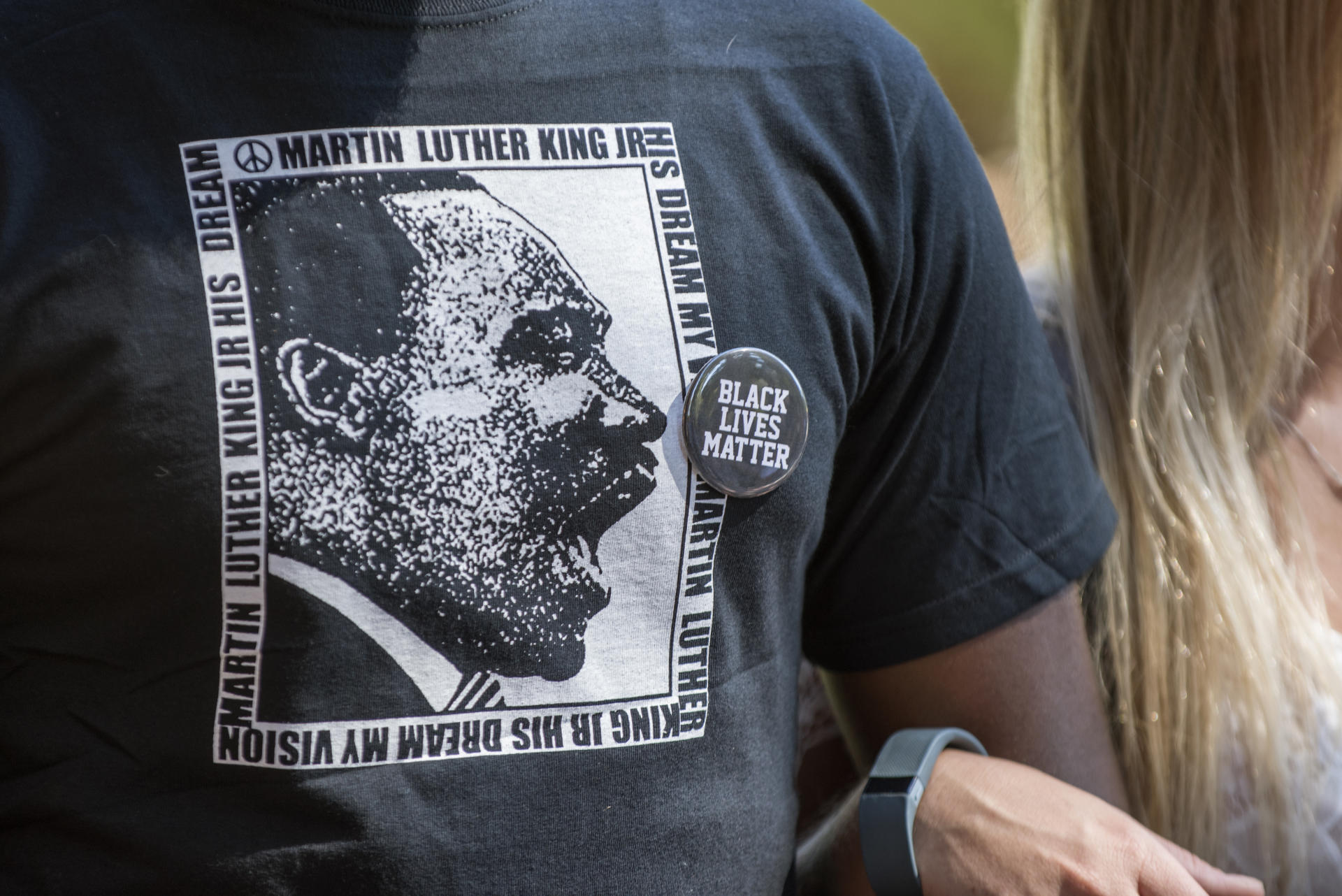Challenging and Changing the Status Quo

Hundreds formed a line side-to-side in front of Kendall Hall to stand in solidarity for a 10 minute moment of silence at the BlackInChico Protest on Monday, September 26, 2016 in Chico, Calif. Activists present ranged from students and community members, to faculty and administration. Organized by members of the Black Faculty and Staff Association with Black communities across the nation (#StayAtHomeSeptember26) as part of the Black Lives Matter movement. (Jason Halley/University Photographer)
This is a joint message shared with the campus community from President Gayle Hutchinson, Interim Chief Diversity Officer Chela Mendoza Patterson, and Associated Students President Bre Holbert.
While we grapple with the challenges of the pandemic and wildfires, as a community we cannot ignore another major threat to our collective well-being—injustice in our society. Before we say anything more, let us be clear—Black lives matter. It is long past time to confront the systemic racism that has plagued our country since its founding and critically examine our own institution.
While Chico State has been focused on equity, diversity and inclusion work for decades, we can and should do more. The lived experiences of our students of color challenge and compel us to dig even deeper into changes we can make to end institutional racism and bring about equity.
That is why equity, diversity, and inclusion is the top priority in the University’s Strategic Plan released last fall; and, today, we want to share some of the key actions we will take this academic year. Several build upon work already happening within the University Diversity Council, the Office of Diversity and Inclusion, the Academic Senate, and the University Police Department.
- Charge a presidential task force to ensure University Police policies and practices are inclusive and representative of our community, are without bias or racism, and align with the University’s strategic priorities. We will work with an external consultant and the campus community to complete this initiative by May 2021.
- Facilitate a survey of students, faculty, and staff to identify critical issues related to racial discrimination and institutional racism on our campus, and report findings and provide recommendations to the President by May 2021.
- Strive to increase faculty diversity by 1% per year to better reflect student demographics by 2030. We have already secured grant funds to jumpstart our investment in improving our processes for hiring and retention of diverse faculty.
- Evaluate options for increased, mandatory anti-racism training for students, faculty, and staff and provide recommendations to the President by December 2020. This will include working with labor unions for approval of mandatory trainings for employees.
- Review the University executive memoranda to identify racist policies and propose modifications for review and consideration by the Academic Senate in the 2020–21 and 2021–22 academic years. We will work with an external consultant to complete this initiative.
- Implement a rubric for our General Education program to evaluate how courses and programs support equity, diversity, and inclusion learning outcomes.
- Use this year’s Book in Common, How to be an Antiracist by Ibram X. Kendi, to deepen the campus and community conversation. Join us for events this month.
- Catalog our campus efforts focused on equity, diversity, and inclusion to share our work, progress, and resources while holding ourselves accountable to the community—this includes a new website to launch later this month.
- Following Assembly Bill 1460, which was signed into law this summer, we are preparing to implement a new three-unit ethnic studies course requirement for students who enter as freshmen in 2021–22. These students must take a course in Native American studies, African American studies, Asian American studies, or Latinx studies.
While this list underscores the University’s commitment to this work, it represents only a fraction of many activities and countless faculty and staff across our campus who are working to challenge and change the status quo in ways large and small. We invite you to learn more about some of this work by watching President Hutchinson’s conversation with Krystle Tonga, associate director of the Cross-Cultural Leadership Center, during Convocation.
As we move forward this fall, we encourage you to learn about the history of marginalized populations and engage in direct and honest conversations that help us all increase understanding about people and cultures different from ourselves. Let’s work to eliminate stereotypes we may hold toward others, even unconsciously, and seek out and change the policies and structures on our campus and in our society that uphold these biases. Our campus departments and resources, like Office of Diversity and Inclusion, Cross Cultural Leadership Center, Latinx Equity and Success, STAR Center, International Education and Global Engagement, Tribal Relations, Multicultural and Gender Studies, Faculty Development, and others, are here to support you and this work.
It will take actions by all of us individually and collectively to eliminate structural racism and other prejudices from Chico State. I look forward to continuing this conversation and reporting on our progress.


